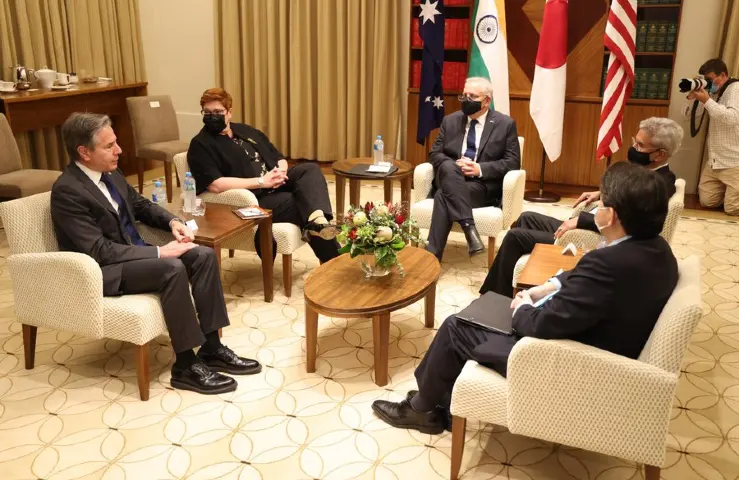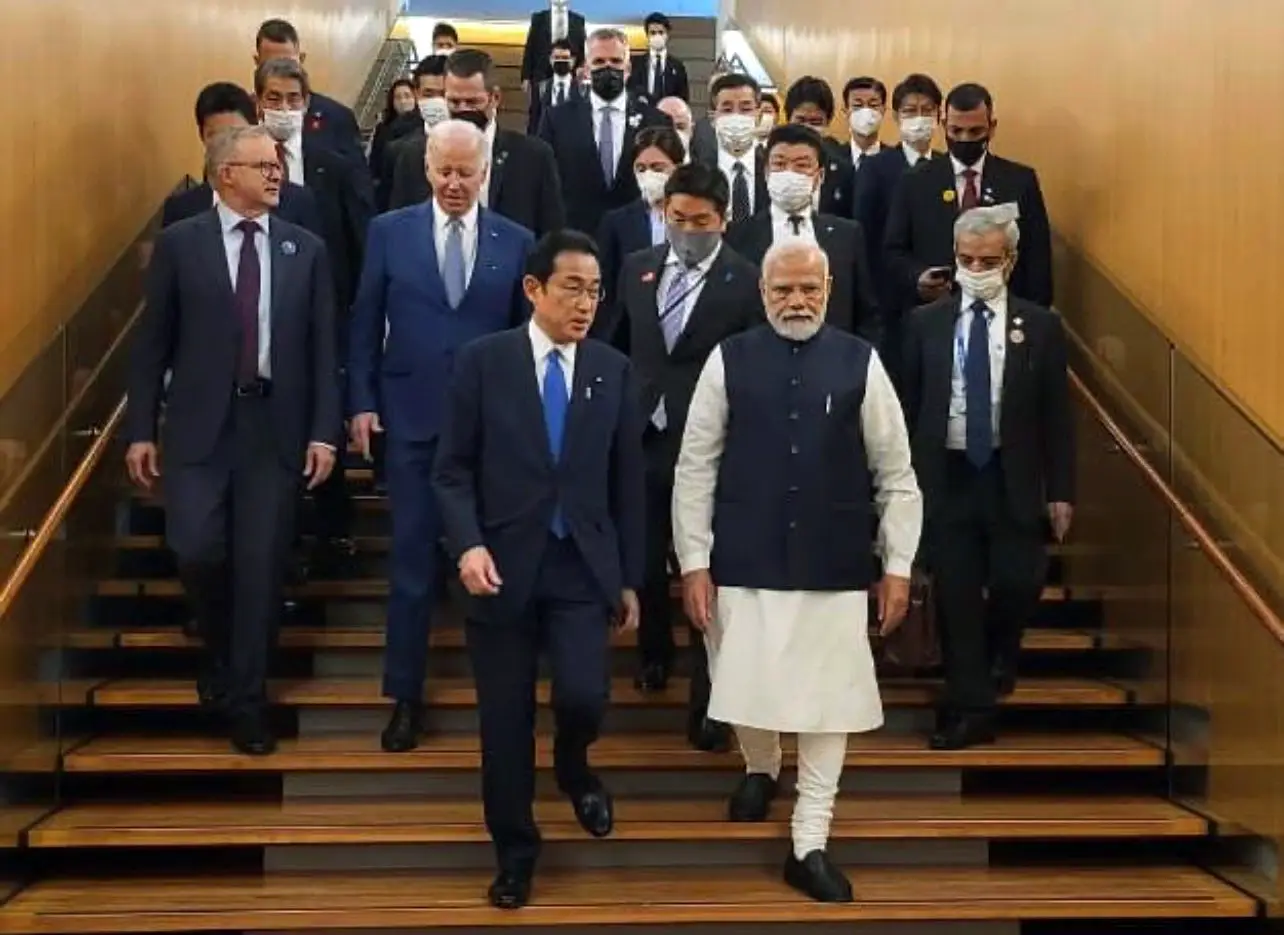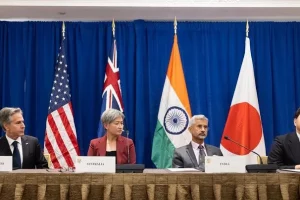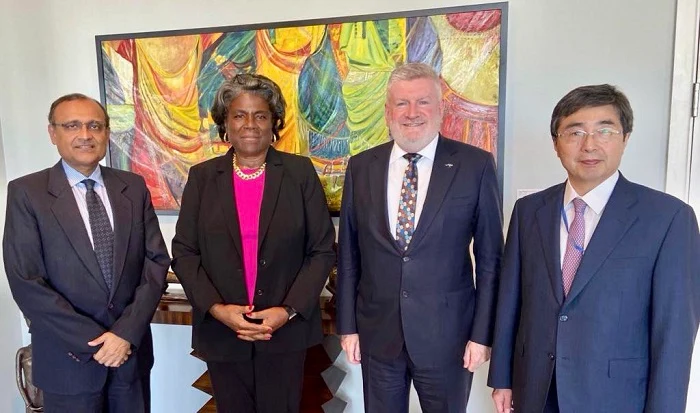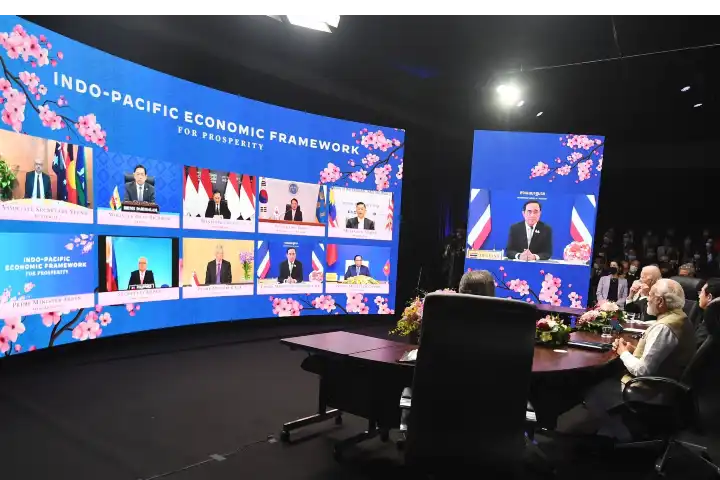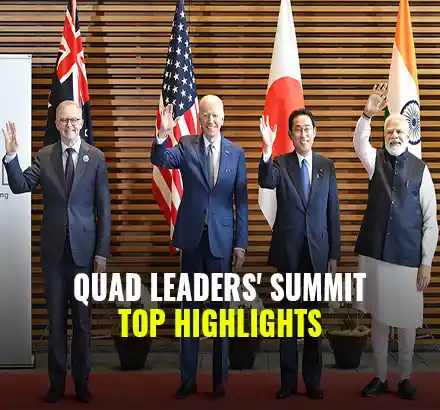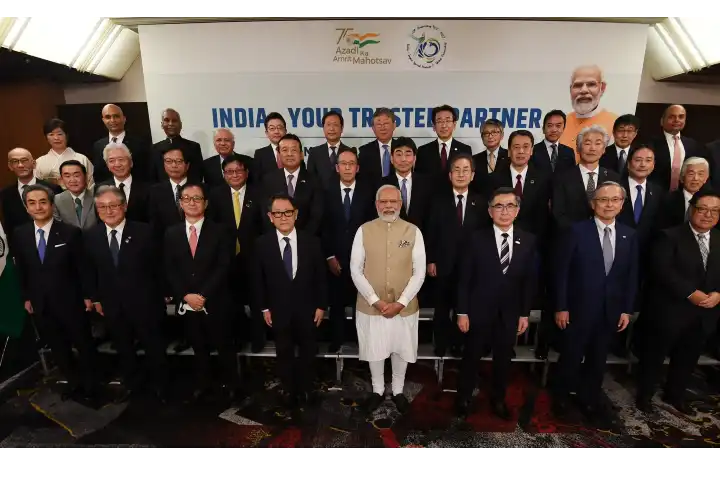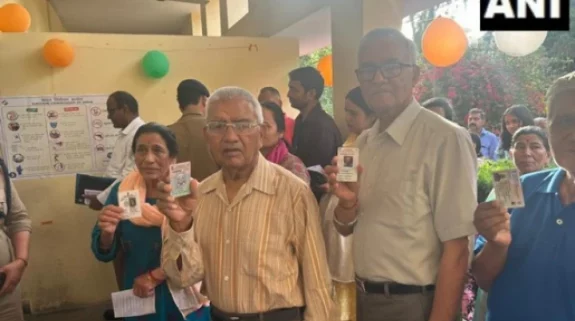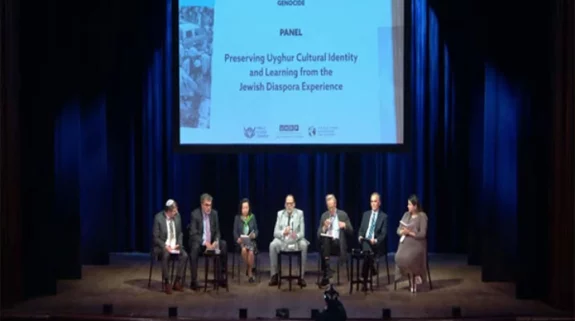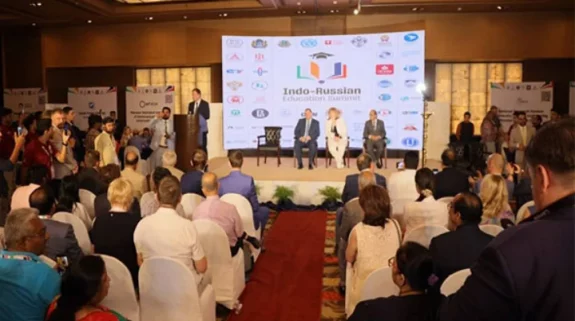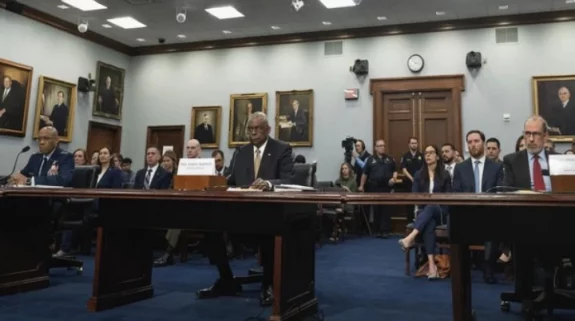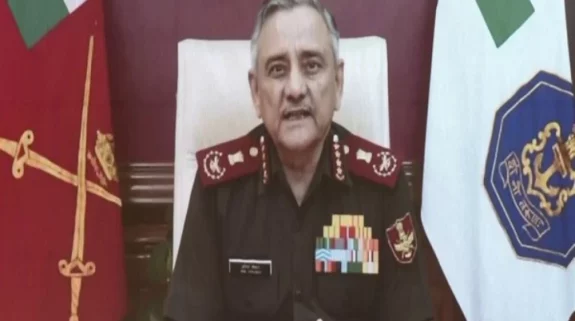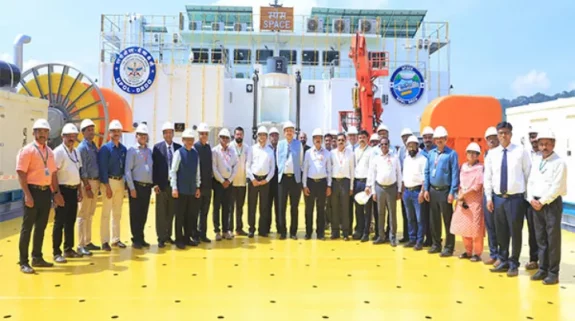The fourth meeting of the Quad foreign ministers was held in Melbourne on February 11. It is a testament to the importance that the Quad members viz Australia, India, Japan and the US attach to this grouping that the foreign ministers of the last three countries invested the time, effort and energy to travel to Australia for the meeting. This was the third in-person meeting between the Quad foreign ministers, the first two having taken place on the sidelines of the UN General Assembly in 2019, and, in Tokyo in the dying months of the Trump Presidency in October, 2020. The fourth meeting between the Quad ministers was a virtual interaction organised by the US Secretary of State Antony Blinken in February, 2021, within a month of assumption of office by President Joe Biden.
India can assume quite some credit for the rapid advance and momentum that the Quad has registered in recent years. India is the only country amongst the Quad that shares a long 3,488 kms land boundary with China. The ostensible reason for the coming together of the Quad after a hiatus of about 10 years was the aggressive and coercive stance of China in the South and East China Seas as well as its belligerence against countries of the Indo-Pacific region including India. It was speculated at the time of Chinese intrusions in Doklam in 2017 and in Eastern Ladakh in 2020 that China was expressing its displeasure at India’s growing closeness to the US. However, it is precisely China’s actions over the last few years in the region that have been instrumental in providing greater energy and oxygen to the Quad and also to the launch last year of AUKUS (Australia, UK, US) partnership in the security and defence domain.
The pace at which the Quad has evolved over the last four years is quite extraordinary. The second incarnation of the grouping was launched on the sidelines of the East Asia Summit in Manila, Philippines in November, 2017 during the visit of the then US President Donald Trump along with leaders of the other three countries. For the first few years, discussions took place on the margins of major international meetings and conferences at Joint Secretary/ Director General level. These meetings were upgraded to the foreign minister level in September, 2019 in New York. The grouping has not looked back since then.

External Affairs Minister S Jaishankar addresses the Australia India Chamber of Commerce (Photo: MEA)
When Biden became President last year, there was concern whether he would accord the same priority and attention to the Quad and to China as his predecessor had done. It was thought that since the revival of the Quad was a Trump initiative, Biden might not wish to associate himself with it. Biden, however, surprised everyone by doubling down on his support for the Quad. He organised the first virtual Summit between the Quad leaders in March, 2021 followed by the first in-person meeting in Washington DC in September last year. Holding two Summits of a multilateral or regional grouping within a year is truly exceptional. By arranging these Summits in 2021, Biden sent out a strong message that the US is fully invested in the Quad objectives as well as in implementation of the decisions.
This time, the Quad foreign ministers meeting focused on the implementation of the decisions taken since the first Summit in March last year. Issues that have occupied the greatest attention of the Quad leaders over this period are the production and supply of Covid-19 vaccines, dealing with the climate change challenge, collaboration in critical and emergent technologies, and others like maritime domain awareness and security, infrastructure, Humanitarian Assistance and Disaster Response (HADR), education, counter-terrorism, cyber security, infrastructure, peaceful use of outer space, education, countering disinformation and others.
All these issues find considerable space in the Joint Statement issued on conclusion of the meeting. The ministers appear to have realised that time for general omnibus statements and pronouncements is over and it was essential to demonstrate action on the ground to inspire confidence and trust of the international community in the grouping. The ministers have been largely successful in achieving this objective. In addition, without naming China or Pakistan, the statement expresses its strong condemnation of their activities in the maritime domain (in the case of China) and terrorism (for Pakistan).
The Statement reaffirms the ‘’Quad’s commitment to supporting Indo-Pacific countries’ efforts to advance a free and open Indo-Pacific – a region which is inclusive and resilient, and …free from coercion.’’ This is a direct reference to China’s expansionist activities in the region.
The Statement reaffirms the Quad’s pledge to donate more than 1.3 billion vaccine doses globally. It notes the ‘’rapid progress in expanding vaccine production at the Biological E Ltd facility in India, which aims to deliver at least 1 billion vaccines by the end of 2022.’’ The Statement extensively details actions being taken by the constituent countries to ensure the success of this major initiative.
India slams China for disregarding written commitments, amassing forces at border
The Ministers emphasized ‘’the importance of adherence to international law, particularly as reflected in the UN Convention on the Law of the Sea (UNCLOS), to meet challenges to the maritime rules-based order, including in the South and East China Seas.’’ They reiterate their commitment to ensuring freedom of navigation and over flights etc. All these are clear pointers to the unacceptable Chinese actions in the South and East China Seas.
Terrorism including proxies for cross-border terrorism, elimination of terrorist safe havens etc. is an issue that receives considerable coverage in the Statement. For the first time, the Joint Statement condemns ‘’terrorist attacks in India, including 26/11 Mumbai and Pathankot attacks.’’ It also extends support to ‘’UNSC Resolution 2593 (2021) that Afghan territory should not be used to threaten or attack any country, shelter or train terrorists, or plan or finance terrorist acts..’’
Without naming China, the Ministers expressed their strong support for the ‘’free, open, and inclusive rules-based order, rooted in international law, that protects the sovereignty and territorial integrity of regional countries.’’
While there are critical references to the situation in Myanmar and North Korea in the Statement, there is no mention of either Russia or Ukraine although the Ministers of USA, Japan and Australia stridently criticised Russia in their statements for its intimidating actions against Ukraine. This is obviously in deference to India’s position which is not to take sides in the ongoing Russia-Ukraine/USA stand-off but push for the dispute to be settled amicably through diplomacy.
As expected, China launched a strong attack on the Quad calling it a “tool” to contain China and a deliberate move to stoke confrontation. China realizes full well that the Quad has been resurrected and is gaining strength, notwithstanding China’s opposition, precisely because of China’s expansionist and aggressive policies. Such comments however reflect China’s deep sense of insecurity at the coming together of the world’s four major democracies. The Quad countries have stated categorically that it is free, open and inclusive and is not directed against any country. If China wants the Quad to moderate its activities, it should start conducting itself as a responsible stake-holder of the international community. But consumed by hubris as China is, this is too much to ask of it.
Deliberations and decisions at the Quad foreign ministers meeting will feed into the forthcoming Summit to be organized by Japan in April or May. This meeting as well as the next Summit will go to significantly enhance the trust and credibility of the grouping and reassure members of ASEAN, South Asia, Europe and other regions that the Quad is a partnership for global good and needs to be supported.
Currently the time is for consolidation of the Quad structure. This is being done with the many substantive and concrete decisions taken by the foreign ministers at the Melbourne meeting. While continuing this task with vigour and determination, the Quad should also consider its expansion, either formally, or better still, to begin with, on an informal, issue- based level. A parallel deepening and widening of the Quad membership and areas of cooperation will contribute to the early success of the grouping and rapid achievement of its objectives.
(Amb. Ashok Sajjanhar is a former Ambassador of India to Kazakhstan, Sweden and Latvia. He is an Executive Council Member at the Manohar Parrikar Institute for Defence Studies and Analysis and President, Institute of Global Studies. Views expressed are personal and exclusive to India Narrative)






